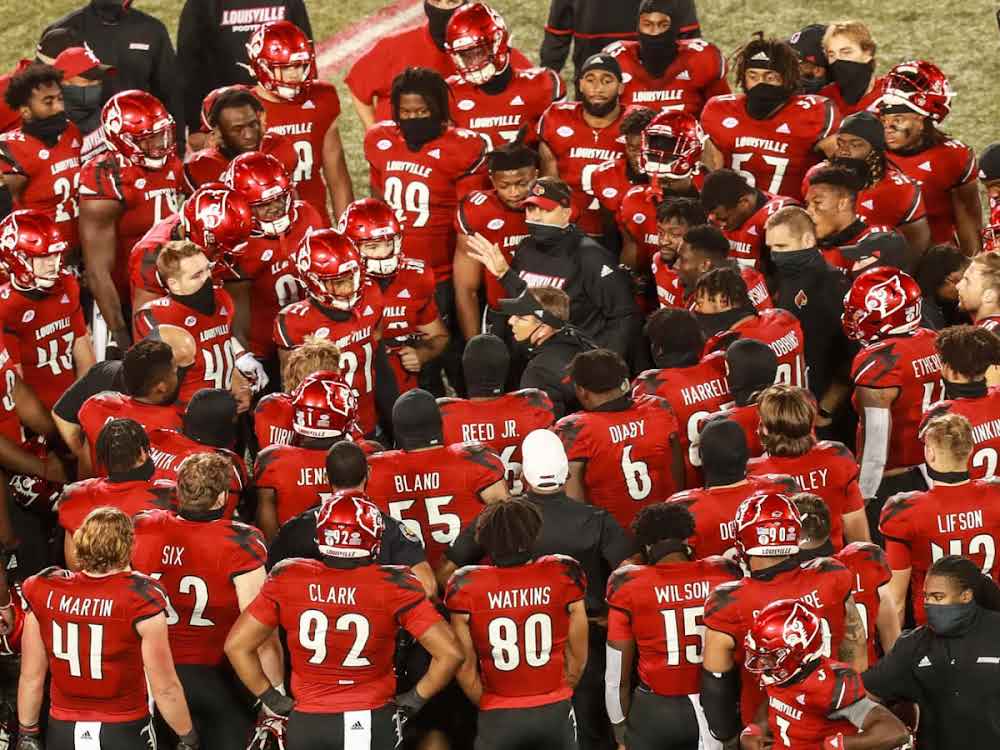
LOUISVILLE, KY: In its yearly Governor’s Cup matchup with Kentucky, the Louisville football team lost 38–31, extending their losing run in the rivalry to five games. This was due to costly errors made in the closing minutes of the game.
I wanted to offer some final reflections and insights from the game against the Wildcats before we put the game behind us and move on to the ACC Championship Game versus Florida State:
I’ll start by saying this: this game against Kentucky felt quite different from the ones played under Scott Satterfield. I honestly believed that Louisville had a chance to win until the clock reached double zeros, regardless of the circumstances or the amount of time remaining. Having said that, I was unsatisfied with the execution’s erratic nature and general concentration. The dominant storyline going into this game, as it has been throughout the whole week and even going back to the offseason, was how crucial it was for the program to defeat Kentucky. But during the game, there were several instances where neither the coaches nor the players were putting in the necessary effort.
The team was not being put in the greatest possible position to succeed, neither the coaches nor the players. At the end of the game, I couldn’t get rid of the sensation that Kentucky still values this game more than Louisville does, even though Louisville undoubtedly fought until the very end and I don’t think they were neglecting Kentucky in favor of Florida State. Despite my knowledge of Jeff Brohm’s intense desire to defeat them.
Upon rewatching the game, it turned out that Brohm’s offensive play calling was not as poor as it appeared when it was happening in real time. Sure, there were a few instances where the play calling didn’t make a whole lot of sense, as on Louisville’s last drive of the first half, but I believe that a large portion of Louisville’s offensive errors were more the result of poor on-field execution. the two huge errors that occurred in the second half. A few routes were run just short of the line to gain in circumstances where passing was obvious. The offensive game plan, in my opinion, was mostly one that could work; it was just poorly carried out.
The players’ inability to control their emotions during this game was maybe the biggest letdown. Since Mark Stoops took over, Kentucky’s strategy has been to throw as many cheap shots and other things of that kind into the game as possible. Fans of Kentucky, myself included, as well as Kirby Smart, are aware of it. However, Louisville immediately fell for Kentucky’s bait and joined in on the fights they instigated.
Come on, Chris Bell. You have now done that twice in a row when playing the UK, letting your feelings get the better of you.
Looking at the final figures, it’s clear that Jawhar Jordan and QB Jack Plummer, Louisville’s two best offensive players, contributed significantly to the team’s ability to stay in the game and didn’t have particularly poor performances. Plummer tried to set the tone early in the run game by being active, and his fourth-down throw to Ahmari Huggins-Bruce was possibly the best play of his college career. Overall, Plummer made wise judgments with his throws.
Jordan may not have had the most impressive yards per run average in this game, but he did assist Louisville in putting together two patient scoring drives. But these two blunders in the second half are just not acceptable. In an instant, the Wildcats’ command was evident as they went from a three-point lead—with momentum already beginning to shift in Kentucky’s favor—to a ten-point disadvantage. They did put Louisville in a position to attempt and win, but they also placed the Cardinals in dangerous situations that had a significant impact on the result.





